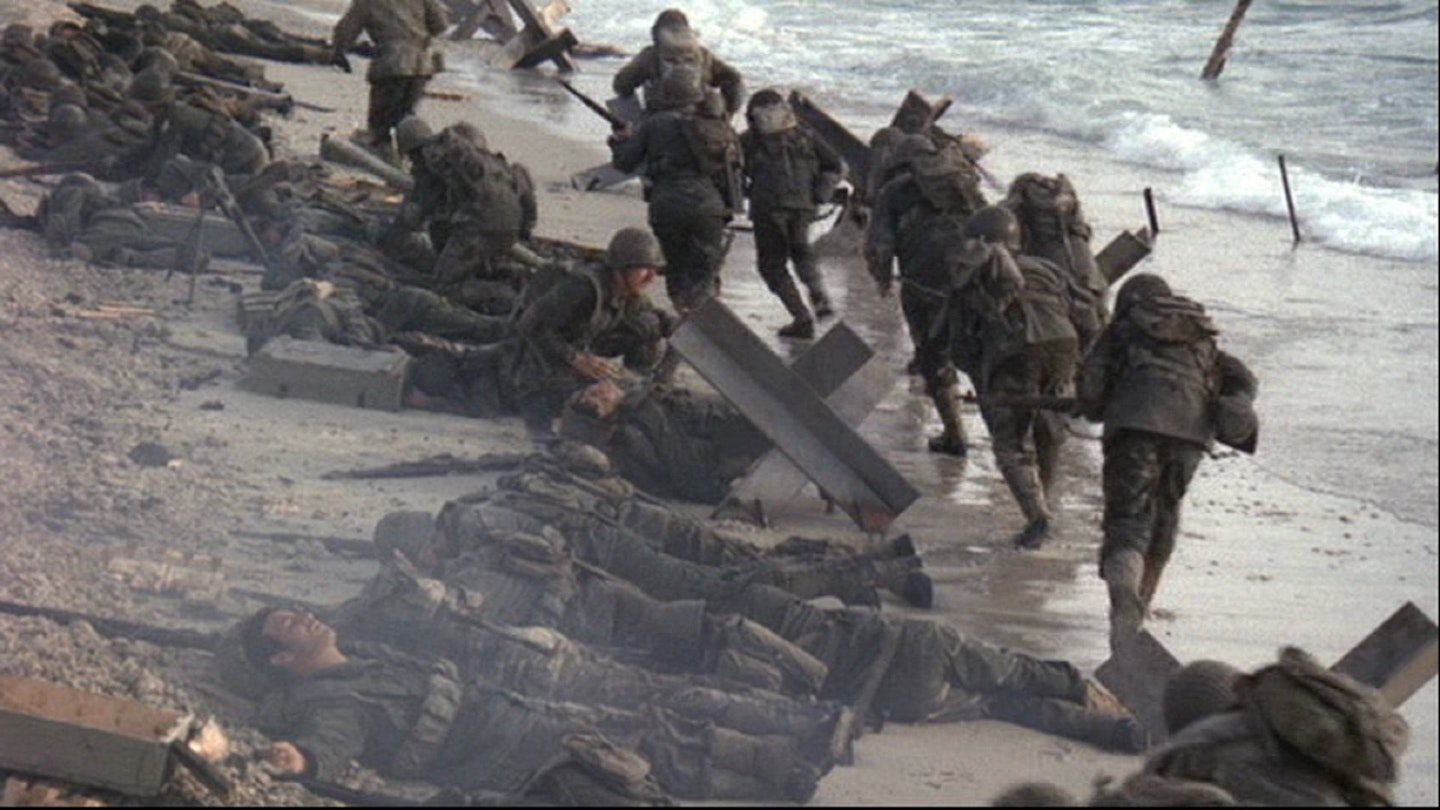Writer, producer and director Sam Fuller was a unique, idiosyncratic voice in Hollywood, whose raw, unrefined, uncompromising perception of the world was somewhat embarrassing to the business men and the bourgeoisie. His work was often disdained as B-movie actioners or melodramas. But he is revered by many filmmakers (Scorsese, Wenders, Tarantino to name but a few who acknowledge his influence) and a major cult of devotees because his films pack real punch. They are full of emotional truth and authentic life experience, none more so than war films including The Steel Helmet (1951), Merrill's Marauders (1962) and his autobiographical masterpiece, The Big Red One. Fuller's boast "Any war picture I made, you're in the war!" is the simple truth.
Well travelled and well seasoned, Fuller had been a crime reporter, political cartoonist and pulp novelist by the time America entered World War II. At 31 he enlisted and as a rifleman in the legendary Fighting First, the Big Red One, fought in North Africa, Sicily, Normandy, Belgium and Czechoslovakia. He kept a diary of sketches, recording the weather, his mental state, his health and the killing. These experiences inform all his war movies, but this is the most personal in detail and tersely eloquent passion.
This is the journey of four "wet noses" — Griff (Hamill), Johnson (Ward), Vinci (Di Cicco), Zab (Carradine as the Fuller character, a narrator who repeatedly hits the nail on the head in a stream of concise observations) — and the Sergeant (Marvin) marching them through hell, keen only on getting through it. You can smell the smoke of battle and the sweat of men trapped and outnumbered, feel the stomach-knotting fear awaiting an enemy's move, the gag-making horror of liberating a concentration camp and coming eye to eye with real evil.
The film opens in France, November, 1918, on a weary Marvin picking his way through bodies and stabbing a stray Joes, their frailties and courage. When men next to them die, all they allow themselves to feel is fleeting relief. The closest they get to a group hug is a surprise reunion with Sarge, whose escape from a German field hospital in Tunis in tattered Arab dress to shepherd his men to Sicily is handled with determined humour; Fuller pulls back to a German beneath a giant crucifix, unaware that the war is over. A piece of cloth from the dead man's hat, a numeral one, becomes the insignia of the First Infantry Division and a quarter of a century later they're about to land in North Africa under the gaze of the veteran, now a sergeant. Although these are the stock characters of war drama — the sage, grizzled Sarge, the farm boy, the street kid, the nice guy who doesn't want to kill anyone and the witness — Fuller's are particularly credible ordinary people.
Fuller's depiction of D-Day is intimate, economical and tersely eloquent. The action is relentless, paced and varied in order to capture a full range of experiences, human and inhuman. The squad's first engagement is an accidental attack when Vichy French troops are trying to throw their lot in with the Americans. Their first encounter with Germans is a nightmare of confusion and panic. From that point they become wiser and warier, more efficient at killing, through scenes of madness (literally, in a raid on a German-occupied mental asylum) and mayhem; punctuated with surprises and snipings for which there is no preparation, only luck or mischance. Only fleetingly does Fuller leave the squad, to visit equally disenchanted Germans echoing the same sentiments (about the distinction between murdering and killing).
While the squad is pinned down on Omaha Beach, losing man after man, wrestling with equipment and terror, he keeps cutting to a wristwatch on a dead soldier in the water. As the remaining First make it through the wire and away, the last shot of the watch shows the water red with blood. The action culminates in, "the final joke of the whole goddam war", a cosmic bit of synchronicity that underlines everything the film has told us: that men never know what it's really all about except to shoot and not get shot.
